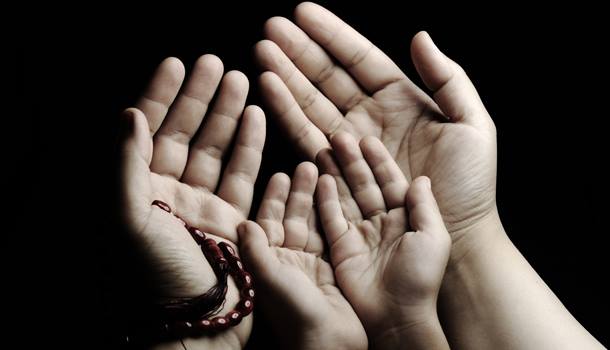
Supplications during and at Break Time
The Lawgiver has recommended that the fasting person take
the opportunity on this occasion and beseech Allah during the
period of fasting, especially around the hour of breaking fast,
iftaar. He should request diligently, whatever he or she desires,
from the Owner of creation, Rabbil Alameen.
In the book of Ibn Maja, Abdullah bin Amru bin Al-As (raa)
reported that the Messenger of Allah (saas) said:
“Indeed, as to the faster, about the time he breaks his
fast, his du ‘a, (supplication) will not be turned away by
Allah.”
This hadith reveals a special privilege afforded only to the ser-
vant who observes fasting and at the hour he brings his fasting
to a close. Each fasting person has the right to supplication and
the right that it will be answered, a promise from the One who
never reneges on His promises.
However, granting the faster’s du’a request falls within the
conditions of du’a. That is, whatever you ask Allah (SWT), He
will grant it in His own time, and when he knows that granting
your request will not lead to your ruin. Do not ask of Him
something unlawful.
In a report by Tirmidhi (raa), the Messenger of Allah (saas) has
been reported as saying:
“There are three categories of people whose du ‘a (sup-
plications) will not be rejected: the person who observes
the fast until he breaks, a just ruler, and the person who
has been wronged.”
This citation supports the previous one, while adding that when
prayers are offered during fasting, supplications are highly en-
couraged.
In addition to the faster, a ruler’s acts of justice weigh heavily
on the scale of good deeds (mizaan). This is the person whose
pronouncements, orders and decrees affects the lives of others.
The ruler may be a political leader, a judge, or a community
leader who does not abuse the power and authority invested in
him. If any one of them makes a request, Allah (SWT) will
swiftly grant it.
Conversely, on the reverse side, if the faster did not observe
fasting properly, or the ruler abuses the power invested in him,
their supplications will not only be turned away unanswered,
but will incur the wrath of Allah.
The third person in the Hadith is al-mazluum. This is an indi-
vidual who has been wronged, such as a victim of a crime
against himself or his property, or if his civil rights have been
violated, or he is a victim of fraud or white collar crime. If such
a person raises his hands and asks Allah (SWT) for help, his or
her prayer will be granted.
